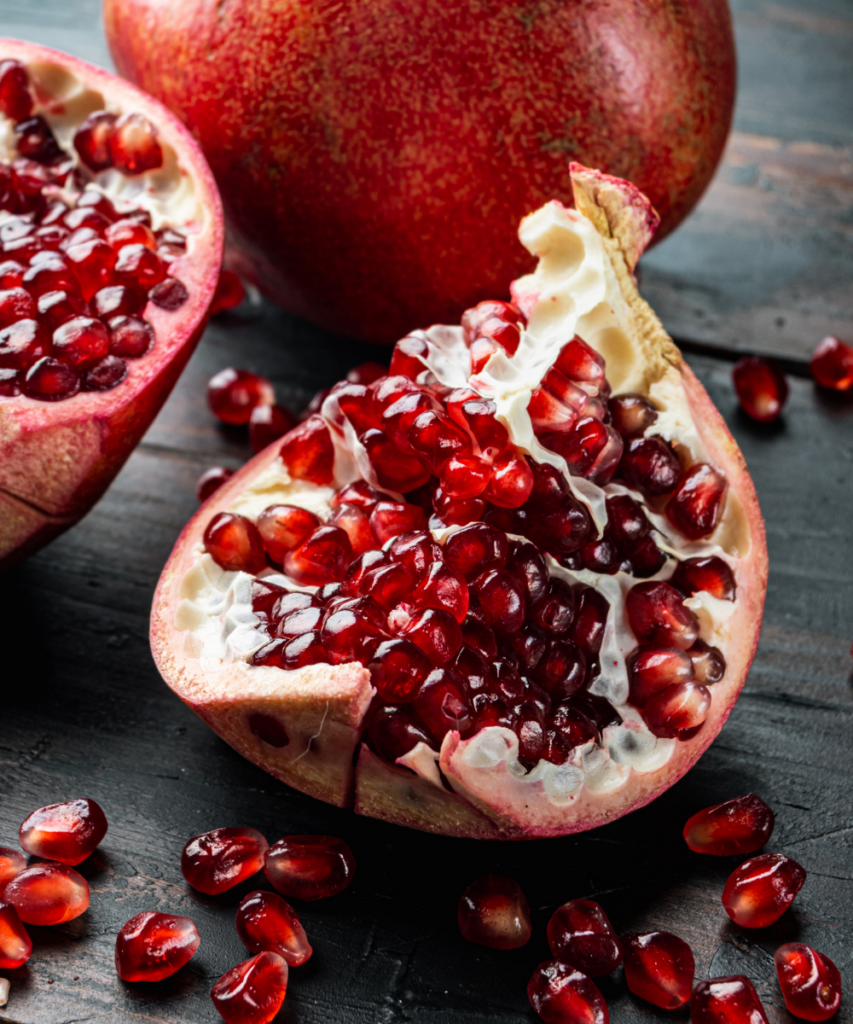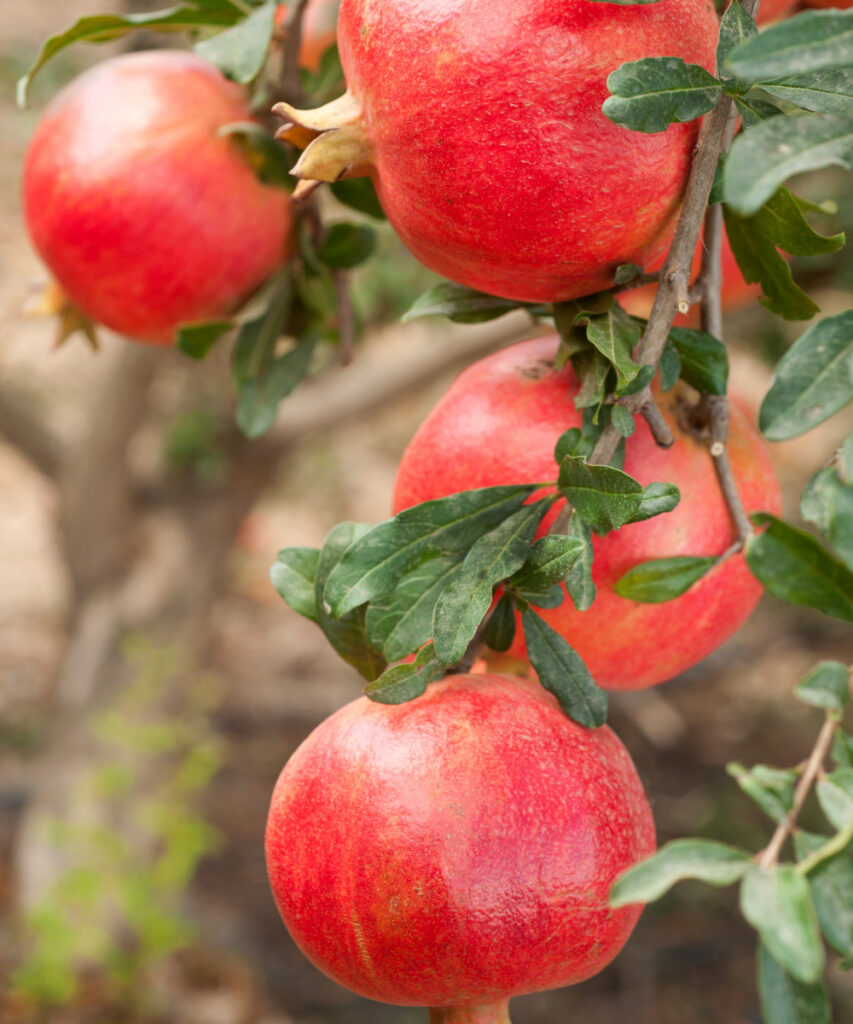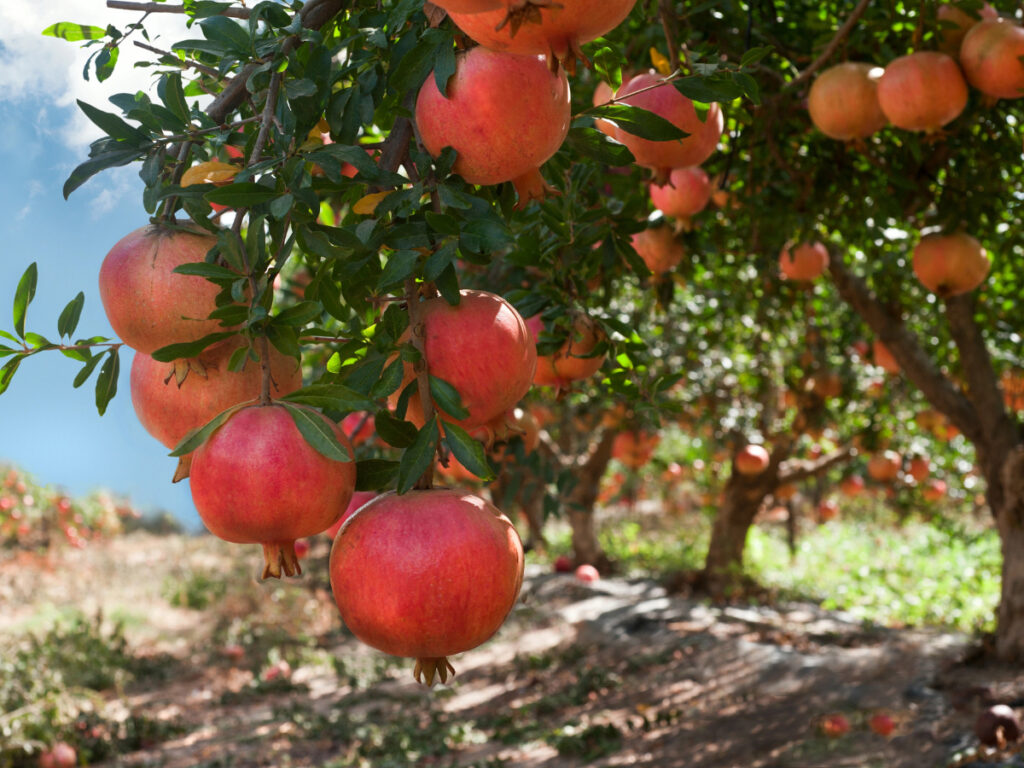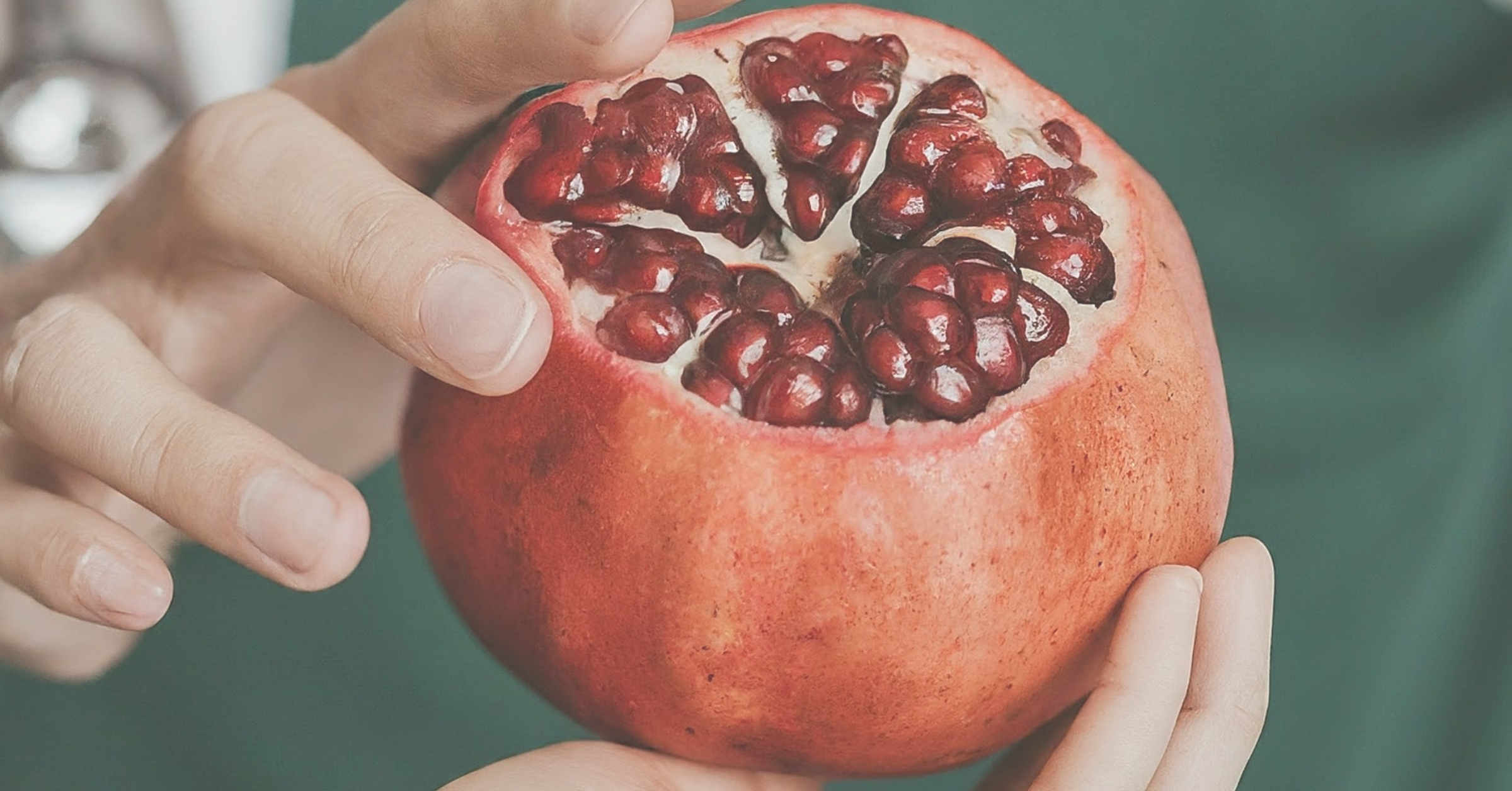Functional Food Powerhouse – Revealing the Multifaceted Benefits of Pomegranate
Mounting evidence highlights the potential of pomegranate’s bioactive compounds. These compounds offer a compelling array of health benefits, including anti-inflammatory, antioxidant, and anti-cancer properties. This positions pomegranate as a potential functional food for chronic disease management. While further large-scale human trials are warranted, the current research lays the groundwork for incorporating pomegranate into dietary and therapeutic regimens.

Chronic diseases pose a significant global health burden. One of the Sustainable Development Goals for 2030 set by the United Nations is to reduce the global incidence and impact of non-communicable diseases. Fortunately, research on plant-based functional foods offers promising avenues for disease prevention and management. Integrative medicine aligns with the holistic approach emphasised by the Sustainable Development Goals. However, its full potential can only be realised through robust education and training programs for healthcare professionals seeking to integrate these modalities into their practice. Clinical studies providing an evidence-base are the foundation of integrative medicine. Pomegranate (Punica granatum L.) stands out as a rich source of bioactive compounds with a growing body of evidence supporting its therapeutic potential. This article delves into the composition of pomegranate and explores the scientific rationale behind its diverse health benefits.
Bioactive Composition of Pomegranate
Pomegranate boasts a unique profile of bioactive constituents, including phenolic compounds (punicalagins, ellagic acid, gallic acid), flavonoids, and fatty acids. Punicalagins, particularly, have garnered significant interest due to their abundance in the peel and potential health effects.
Anti-inflammatory Properties
Chronic inflammation is a hallmark of various pathologies, including cardiovascular disease (CVD), cancer, obesity, and diabetes. Pomegranate’s bioactive constituents demonstrate potent anti-inflammatory activity. Punicalagins have been shown to inhibit the production of pro-inflammatory cytokines such as:
- TNF-α
- IL-1β
- IL-6
- Nitric oxide (NO)
In addition, pomegranate’s constituents inhibit the phosphorylation of signaling pathways that are crucial to the inflammatory cascade:
- NF-κB
- p38 MAPK
- JNK
- ERK MAPK
Clinical Evidence for Anti-inflammatory and Antioxidant Effects

Clinical trials in patients with type 2 diabetes (T2D) consuming pomegranate juice revealed increased total antioxidant capacity (TAC) and reduced malondialdehyde (MDA) levels, indicating reduced oxidative stress and inflammation.
In vivo studies demonstrated that pomegranate juice and punicalagin isolate significantly reduced NF-κB mRNA expression in rats, suggesting a synergistic effect of the whole fruit.
Additionally, studies in murine models of rheumatoid arthritis showed a reduction in pro-inflammatory cytokines like IL-6, IL-1β, and TNF-α upon pomegranate juice consumption. These findings highlight the anti-inflammatory and antioxidant potential of pomegranate.
Pomegranate and Cancer
The NF-κB pathway plays a pivotal role in carcinogenesis. Pomegranate and its bioactive constituents have been shown to downregulate NF-κB activation and induce apoptosis (programmed cell death) in various cancer cell lines, including colon, glioma, breast, lung, and prostate cancer. Preclinical studies suggest that daily consumption of pomegranate juice may decrease PSA levels in men with prostate cancer.
Antimicrobial and Antiviral Activity
Beyond its anti-cancer properties, pomegranate exhibits broad-spectrum antimicrobial and antiviral activity against bacteria (Staphylococcus aureus, Escherichia coli) and viruses (human cytomegalovirus, herpes simplex virus). Notably, punicalagin significantly reduced the interaction between the SARS-CoV-2 spike protein and the ACE-2 receptor, a key step in viral entry into host cells. A randomised, double-blind, placebo-controlled trial involving COVID-19 patients showed that pomegranate juice consumption reduced symptoms like fever, cough, and diarrhoea. These findings warrant further investigation of pomegranate’s potential role in viral mitigation strategies.

Pomegranate as an Antioxidant Powerhouse
Ellagic acid, punicalagins, and urolithins (metabolites produced by gut microbes) demonstrate potent antioxidant activity. Urolithins, specifically, are known for their effectiveness in reducing oxidative stress.
Pomegranate’s Anti-diabetic and Anti-obesity Potential
Pomegranate extracts have shown promise in T2D management by lowering fasting blood glucose levels and enhancing beta-cell function. These anti-diabetic properties are likely due to the combined effects of pomegranate’s bioactive compounds. Pomegranate metabolites influence key enzymes involved in carbohydrate and fat metabolism, such as α-glucosidase, and lipase. Additionally, these metabolites may modulate genes associated with fat cell (adipocyte) formation, potentially impacting obesity risk. To learn more about diabetes and obesity prevention and management, take a look at our comprehensive modules on Diabetes and Obesity in the IHP Mastery Program.
Pomegranate’s Role in Atherosclerosis Prevention
Atherosclerosis, characterised by plaque buildup in artery walls and impaired endothelial function, is a major risk factor for cardiovascular events. Pomegranate consumption may offer a preventive strategy. Ellagitannins and their derivatives have been shown to enhance cholesterol degradation in macrophages, cells involved in atherosclerotic plaque formation. Urolithin B, in particular, exhibits plaque-reducing properties and modulates molecules involved in reverse cholesterol transport, a process that removes cholesterol from arterial walls. Clinical studies in myocardial ischaemia patients revealed that pomegranate intake over three months improved blood flow to the heart muscle and reduced angina episodes.
Pomegranate Contraindications
While pomegranate boasts a range of health benefits, recent preclinical studies suggest potential interactions with medications metabolised by specific cytochrome P450 (CYP) enzymes.
CYP enzymes play a critical role in drug metabolism, and pomegranate appears to influence the activity of certain CYP isoforms, including CYP2C9 and CYP3A4. This can impact the breakdown of medications that rely on these enzymes for clearance.
Pomegranate and CYP Interactions:
In vitro and in vivo studies suggest pomegranate may interact with the following CYP enzymes:
- CYP2C9
- CYP3A4
Potential Drug Interactions:
Preclinical data indicates interactions between pomegranate and the metabolism of some medications broken down by these CYP enzymes. Examples include:
- CYP3A4:
- Carbamazepine (anticonvulsant)
- Buspirone (anxiolytic)
- Nitrendipine (calcium channel blocker)
- Metronidazole (antiprotozoal/antibiotic)
- Sildenafil (pulmonary hypertension)
- Saquinavir (HIV)
- CYP2C9:
- Tolbutamide (type 2 diabetes)
- Warfarin (anticoagulant)
Understanding the biological activity of natural products and their potential interactions with drug metabolism pathways is crucial for optimal patient care. By acknowledging these interactions, healthcare providers can:

- Minimise Adverse Reactions: Proactive awareness of potential pomegranate-drug interactions can help prevent adverse effects in patients.
- Optimise Treatment Regimens: Knowing how pomegranate might influence drug metabolism allows for informed decisions regarding dosage adjustments or alternative medications.
- Provide Evidence-Based Recommendations: Continuous education on the latest research, including preclinical findings on natural products, empowers healthcare professionals to make the best recommendations for their patients.
Remember, a strong evidence base is necessary before incorporating any substance, natural or synthetic, into a therapeutic plan.
Conclusion
The scientific evidence for the therapeutic effects of pomegranate continues to mount. Pomegranate’s bioactive compounds offer a compelling array of health benefits, including anti-inflammatory, antioxidant, anti-cancer, and antimicrobial properties. These properties position pomegranate as a potential functional food for chronic disease prevention and management. While more large-scale human trials are warranted, the current body of research highlights the potential of incorporating pomegranate into dietary and therapeutic regimens. Future research directions could explore synergistic effects with other functional foods or pharmaceutical agents, optimal consumption levels for specific health conditions, and the development of pomegranate-based nutraceuticals. By harnessing the power of nature’s pharmacy, we can move towards a future of improved health and well-being.
How do I Become a Functional Medicine Practitioner to learn more about Functional Foods and their Role in Health?

The Institute of Integrative Medicine is a global leader in the field of Integrative Medicine Education. Integrative medicine aims to be at the forefront of modern technology and new discoveries and focuses on the root cause of disease. With growing evidence for the therapeutic potential of plant compounds in chronic disease management, functional foods and nutraceuticals are gaining traction as complementary tools for physicians. However, safe and effective integration with conventional medicine necessitates thorough training in these emerging modalities. The IHP program addresses this critical need by equipping healthcare professionals with the knowledge to confidently utilise these interventions. We offer certified online courses helping you to take charge of your practice and improve the quality of life for your patients. Find out more about the courses we offer today!

